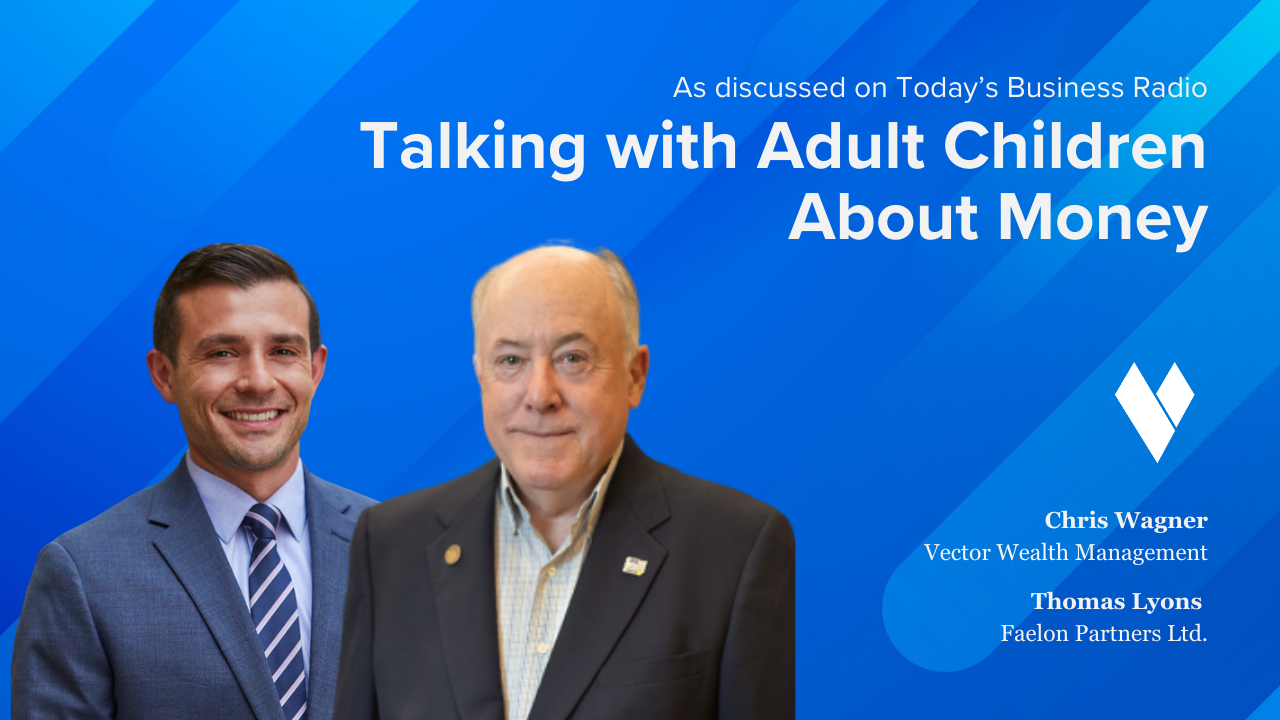Talking with Adult Children About Money
As discussed on Today’s Business Radio, airing on Twin Cities stations KFAN and KTLK, host Tom Lyons sat down with Chris Wagner, an advisor from Vector Wealth Management, to talk about a critical conversation parents should have with their adult children: money and investing.
Many parents who have built substantial wealth over decades want to ensure their children develop a healthy, informed relationship with money. The goal is simple: help them avoid costly mistakes and prevent dependence. At Vector Wealth Management, we often counsel families through these conversations, and the earlier they happen, the better.
Start with Personal Responsibility
The foundation of financial well-being begins with personal responsibility. Parents can—and often will—help, but adult children must first rely on themselves. The future of government programs and entitlements is uncertain, and no one should assume these will provide sufficient support decades from now.
Encourage your children to view independence not just as a financial goal, but as a life skill. The best things in life often come from accountability and effort.
Keep It Simple
Too often, money conversations become overwhelming. Instead, focus on a few clear, manageable habits:
Save 10–15% of income. Automating contributions makes consistency easier.
Build an emergency fund. Three to six months of living expenses is a strong starting point.
Avoid high-interest debt. Credit card balances can quickly derail financial progress.
When these basics are in place, there’s room to enjoy life—go to concerts, travel, or buy that new pair of shoes. A solid financial foundation allows for balance between security and enjoyment.
Time Matters More Than Timing
One of the most powerful factors in wealth building isn’t how much you invest, but when you begin. The cost of waiting is significant.
For example:
A 25-year-old investing $500 a month could accumulate more than $1 million by age 65.
A 45-year-old starting with the same $500 may end up with only a third of that amount by retirement.
This demonstrates the compounding impact of time in the market—a lesson every young investor should understand.
A Conversation That Compounds
Financial literacy is not a one-time lesson. Like investing, it compounds over years. By starting early and emphasizing responsibility, simplicity, and time, parents give their adult children a lasting framework for success.
The earlier these conversations begin, the more confidence and clarity the next generation will have as they navigate their own financial lives.
Ready to learn more? Schedule a consultation today.
This content is provided for general information and should not be treated as a substitute for professional advice. Investments involve risk, including the potential loss of principal.
V25245270

